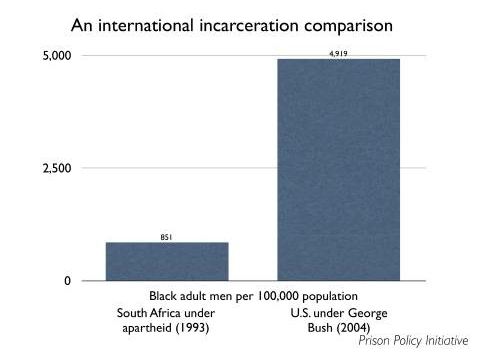by whatever means necessary
The major international media coverage created by these copycat hijackings inspired Black September, members of the Palestinian Liberation Organization, to take 11 Israeli athletes hostage at the 1972 Munich Olympic Games. Their assault further delineated the divergence of symbolic and tactical terrorist attacks as the events during what become known as Black September marked a further enhancement of Symbolic Terror.
It began just before five in the morning, when eight members of Black September broke into the Israeli athletic dormitory – killing two of their targets on the way in and managing to take nine hostages alive. The dorm was quickly cordoned off by police as the terrorists issued their demands, threatening to kill an Israeli hostage every two hours their demands were left unmet.
It was during this time that the black ski-mask would become synonymous with the terrorist, as one of the members of Black September was made forever a symbol of terrorism – preening in his mask on the balcony of the Israeli dormitory in front of the rolling television cameras. Finally, after fifteen-hours of terse negotiations and the bating of much of the world’s breath, German negotiators brokered a deal that met Black September’s demand for safe passage to an Arab country.
The terrorists, as per their demands, were moved to the airfield of the nearby German airbase of Furstenfeldbruck via helicopter. As two members of Black September moved to inspect the airplane meant to carry them to Cairo, sniper bullets raced in and took down three of their targets. In the ensuing pandemonium all nine remaining athletes lost their lives and all but three of the terrorists were killed.
Again, it’s not that there was no element of Tactical Terror – the alleged goal of the attack was to secure the release of 236 Palestinian prisoners and five German terrorists. However the attack laid heavier on the balance as Symbolic Terror, as the purpose of the operation, “according to Fuad al-Shamali, one of its architects, was to capture the world’s attention by striking at a target of inestimable [symbolic] value (a country’s star athletes), in a setting calculated to provide the terrorists with unparalleled exposure and publicity (the top global sporting event).”3 Granted the word “symbolic” has been added to Shamali’s explanation, but it’s about impossible to argue that the value any star athlete brings to a country is at all tactical.
Even though the attack ended with none of the PLO’s demands being met, it “provided the first clear evidence that even terrorist attacks which fail to achieve their ostensible objectives can nonetheless still be counted successful provided that the operation is sufficiently dramatic to capture the media’s attention.”4 And capture it did, as the events of the Munich Olympic games were covered by over 4,000 print or radio journalists and 2,000 television reporters – resulting in an estimated 900 million people in 100 different countries being spellbound and waiting with a collectively held breath for the events to unfold on their television sets.
The potency of this event was not imbued only because the Olympics are the world’s grandest stage, but because in the early ’70s the mini-cam, the battery-powered video recorder, and the time-base corrector were invented. These portable devices first allowed reporters to broadcast live transmissions from any point on the globe. And the first of those points for many of them was Munich, from where they sent live transmissions into the homes of the world’s television viewers.
For hundreds of millions the attack at the Olympic Games was not happening thousands of miles away, on an entirely different continent. It was happening in their very own living rooms.
Somewhere around a quarter of the world’s population is estimated to have at least been aware of Black September’s Munich attack, with most of them made aware by the television blaring in their living rooms. Along with the Holocaust it is the only real event to be turned into a big-screen movie by Steven Spielberg. The PLO’s intelligence chief explained well that a landmark act of Symbolic Terror had been achieved, “world opinion was forced to take note of the Palestinian drama, and the Palestinian people imposed their presence on an international gathering that had sought to exclude them.”5
Following this act of Symbolic Terror came the thud of international opinion, which was “virtually unanimous of its condemnation of the terrorists’ operation.” Many thought that the PLO had “irredeemably tarnished the righteousness of their cause in the eyes of the world,” and so at first Munich was seen as “a stunning failure and a grave miscalculation, generating revulsion rather than sympathy and condemnation instead of support.”6 But the terrorists of the PLO weren’t too worried.
Time, as it so often is, was on their side.
Just a week after Black September hijacked the Munich Olympic Games, the PLO released a communiqué to a Beirut newspaper gloating that nothing, not “a bomb in the White House, a mine in the Vatican, the death of Mao tse-Tung, an earthquake in Paris” could’ve “echoed through the consciousness of every man in the world like the operation in Munich.” The PLO understood the potency of the Symbolic Terror, going on to write that Black September’s assault had been “from a purely propagandistic view-point, 100-percent successful” since it had been “seen from the four corners of the earth.”
And in the coming weeks the potency of Symbolic Terror was driven home even further, as thousands of formerly apathetic Palestinians rushed to join the terrorist organization. This procession of countervailing events was later paralleled following al-Qaeda’s bombing of the US Embassies in Africa. Revulsion often can’t but help to beget fame.
Eighteen-months after Black September took not even a dozen Israeli lives came Yasir Arafat and the PLO’s proudest moment. In one of the more surreal gatherings of the UN General Assembly, at least until Hugo Chavez came along, Yasir Arafat was invited as a guest speaker. He became the first guest speaker in United Nations history to show up at the General Assembly looking like a mangy hungover ferret brandishing a semi-automatic pistol. After his gesticulating address the PLO was granted special observer status, and by the end of the decade the PLO would have diplomatic relations with fourteen more countries than Israel. All of this with the death of only eleven men.
In the following years the PLO would begin a rash of tactical suicide bombings against the Israeli state that’s still ongoing – exemplifying that once a persecuted minority terrorist group gains legitimacy and followers through Symbolic Terror it will switch to Tactical Terror to attempt to start turning the wheel of Political Terrorism. Which began to turn in Palestine and is still grinding haltingly away today, as each act of violence leads to reprisals by the Israeli government that draws more Palestinians to the extremist cause. Although it continues now under different names, they all owe their heritage to the PLO.












